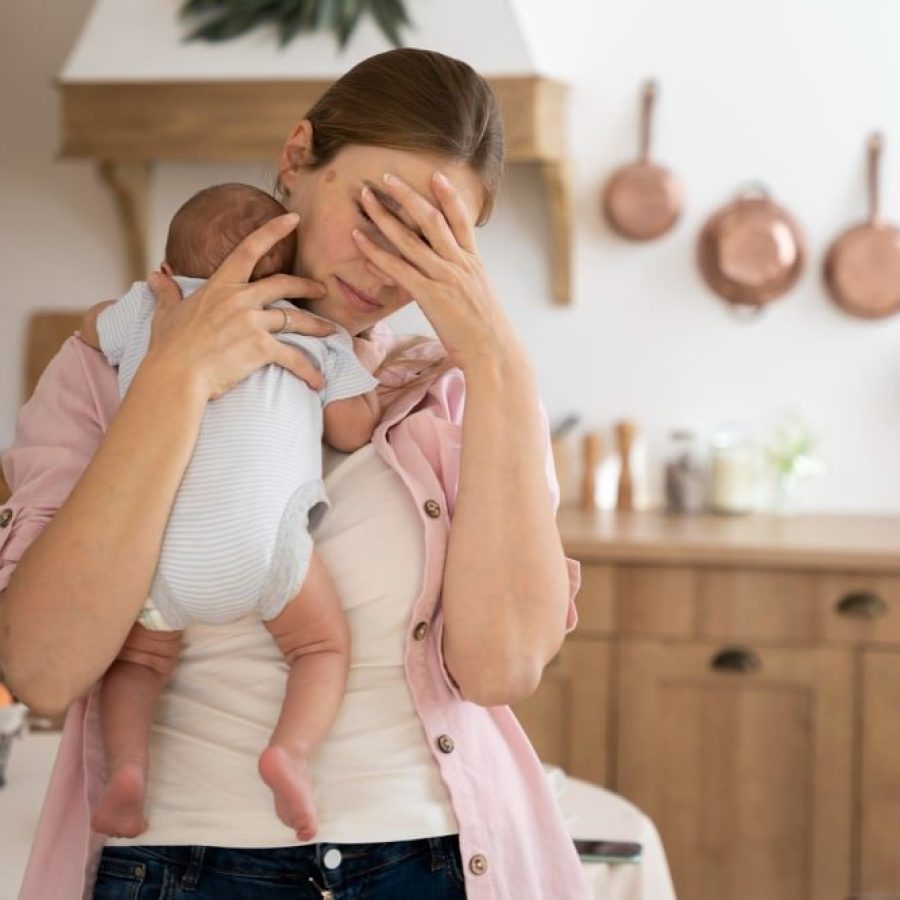Naturally, parents want to spend as much quality time as possible with their children. But life goes on and has its own demands despite this need for comfort and closeness with your Little One. If it’s too hard having time apart, you may see yourself dealing with separation anxiety in infants.
Grown-ups can suffer from this situation as well. And it’s true that your behavior as a parent can drastically influence your child’s reaction to goodbyes (as temporary as they might be).
Let’s take a look at what separation anxiety means, how to cope with it, and still grow a strong connection with your child.
What is separation anxiety
Separation anxiety is simply an exaggerated symptom of a major connection that’s been established between the Little One and their caretaker. Although it’s just a phase and will most likely pass, it still causes distress to both parents and children.
When your child has a demonstration of suffering from being away from you, it simply means that they feel safe around you and don’t want to be apart.
Who can blame them, right? Just as most people don’t want to be apart from the people they love, it’s the same with our children: but, when it comes to separation anxiety, this is demonstrated through sadness, crying etc.
Common signs of separation anxiety in infants to look out for
It might be hard to differentiate a separation anxiety situation from a simple need that the child has to be around their parents and get their undivided attention.
What is the healthy limit of attachment? What does classify as separation anxiety?
- Clinginess: children experiencing separation anxiety often become clingy and reluctant to let go of their mom or dad.
- Tearful tantrums: you may notice more frequent crying spells and tantrums, especially when you attempt to leave them with someone else other than you, or at a place you won’t be present as well.
- Nighttime fears: separation anxiety can also manifest during bedtime, with children having difficulty falling asleep and experiencing night-wakings.
When does separation anxiety happen?
Separation anxiety is a completely expected and normal phase that infants go through. It’s mostly common around 6-8 months of age, and it can last until around 2 years old.
This phase is a sign of healthy emotional development, as it indicates that your child has formed a strong attachment to you and is learning about relationships.
Separation anxiety is often correlated with the children’s understanding of object permanence: this means that the baby acknowledges the fact that you are not around them all the time.
As a consequence, it may cause them to get unsettled because they are attached to you, and they miss Mom or Dad when they’re not around.
How to handle separation anxiety?
Acknowledging and dealing with separation anxiety between children and their parents is of paramount importance for several reasons, especially for parents dedicated to promoting their child’s self-development and independence.
How can you prepare yourself to deal with separation anxiety in its most common triggers?
- Gradual separation: when you’re visiting someplace new to the child, start with short separations and gradually increase the duration over time. When you are at a party, for example, this could mean going to the toilet by yourself at first and later on, spending some time talking with another adult. This helps your child become more comfortable with the idea of you not being around all the time.
- Create a goodbye routine: establish a consistent and reassuring goodbye ritual, such as a special hug or saying a specific phrase. You can also select transitional objects that are given to your child as a special comfort item – like a favorite toy or a blanket that they can hold onto while you’re away. This transitional object can offer comfort and security.
- Short and positive goodbyes: keep your goodbyes short and sweet. Be mindful of not letting the child sense that you’re unhappy for being away from them, because this will only make the separation moment harder. Also, prolonged farewells can heighten anxiety. A quick, loving goodbye reassures your child that you’ll be back soon!
- Communicate: use age-appropriate language to explain your departure and return (i.e. instead of saying you’ll be gone for 3 days, say you’ll be out for 3 sleep nights, and then you’re back!).
While you’re dealing with separation anxiety in infants, be patient and flexible. Adjust your approach as needed to help your child overcome separation anxiety while managing the demands of a busy family schedule. Now, while you’re interested in providing the best experiences for your children as they develop, how about learning the importance of preschool for children?


